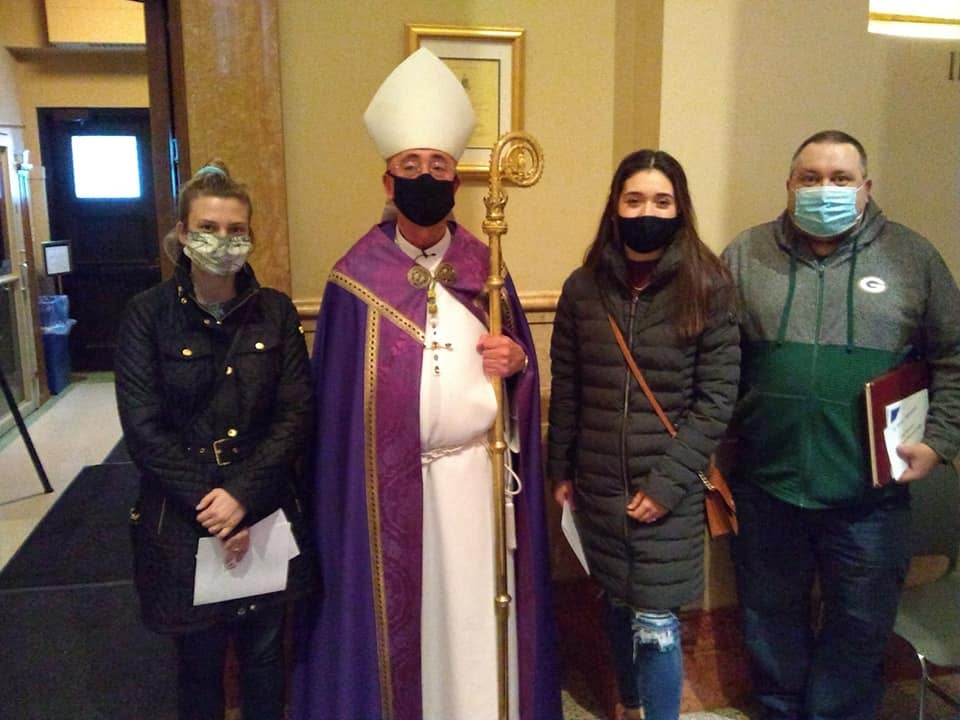
St. Patrick in Whitewater was one of the many parishes who had catechumens attend the Rite of Election, which was presided over by Bishop James T. Schuerman on Sunday, Feb. 28. (Photo courtesy of St. Patrick Whitewater)
The Rite of Election in 2020, held on the first two Sundays in March last year, marked one of the last large-scale events the Archdiocese of Milwaukee would have before the coronavirus pandemic transformed daily life. Just a few days later, public Masses would be canceled, and would remain so throughout Lent and the Easter season.
It made for an even more poignant celebration of the rite this year, on the Sundays of Feb. 21 and 28 at the Cathedral of St. John the Evangelist. Pre-registration was required and all attendees were seated in single chairs and asked to mask. But, the sight of a full Cathedral, and the hopefulness of the baptismal call, made for a triumphant atmosphere which seemed to signify that even this deadly virus cannot stop the dawning of Easter morning.
But, treacherous waters must always precede the promise of a new day. As Bishop James Schuerman, who presided at the bilingual Feb. 28 rite, reminded attendees: “As the ark endured the chaotic waters of the flood in order to come to a new day, a new creation, so Christians pass through the waters of baptism to a new conscience, and a new way of being.”
“Baptism is not a symbol of Lent; rather, it is a transformative experience for us, just as the resurrection was transformative for Christ,” he said.
The Rite of Election is the liturgy where catechumen (who are to be baptized) declare, before the bishop of their diocese, their desire to enter into the sacraments of Baptism, Confirmation and the Eucharist in the Catholic Church, and where the bishop discerns their fitness for that initiation. It is usually held on or near the first Sunday of Lent, and signifies the close of the “Period of the Catechumenate” and the beginning of the “Period of Enlightenment and Purification” before initiation at the Easter Vigil. During this latter period, the catechumen delve more deeply into the development of their own interior life and their spiritual development.
Such periods of purification are necessary for all of us to remain faithful to our baptismal promises, said Bishop Schuerman, who noted that even Christ himself, as depicted in the afternoon’s Gospel reading, retreated into the desert for a period of 40 days’ fasting and prayer.
“Satan, the evil one who tries to turn people away from God, tempted Jesus — and Jesus emerged victorious,” said Bishop Schuerman. “This time of testing and trial served as preparation for Jesus’ ministry.”
After the arrest of John the Baptist, he continued, Jesus went to Galilee to begin his public ministry. “He said this is a time of fulfillment — the kingdom of God is at hand: repent and believe in the Gospel … the kingdom of peace, justice and love is within reach.”
“However,” Bishop Schuerman reminded the congregation, “it can only happen through change. Repent. Change your way of thinking. Turn your lives to God. Change your minds and your hearts. Believe in something real, something amazing — the good news that God loves you and wants the best for you. New life and salvation.”
